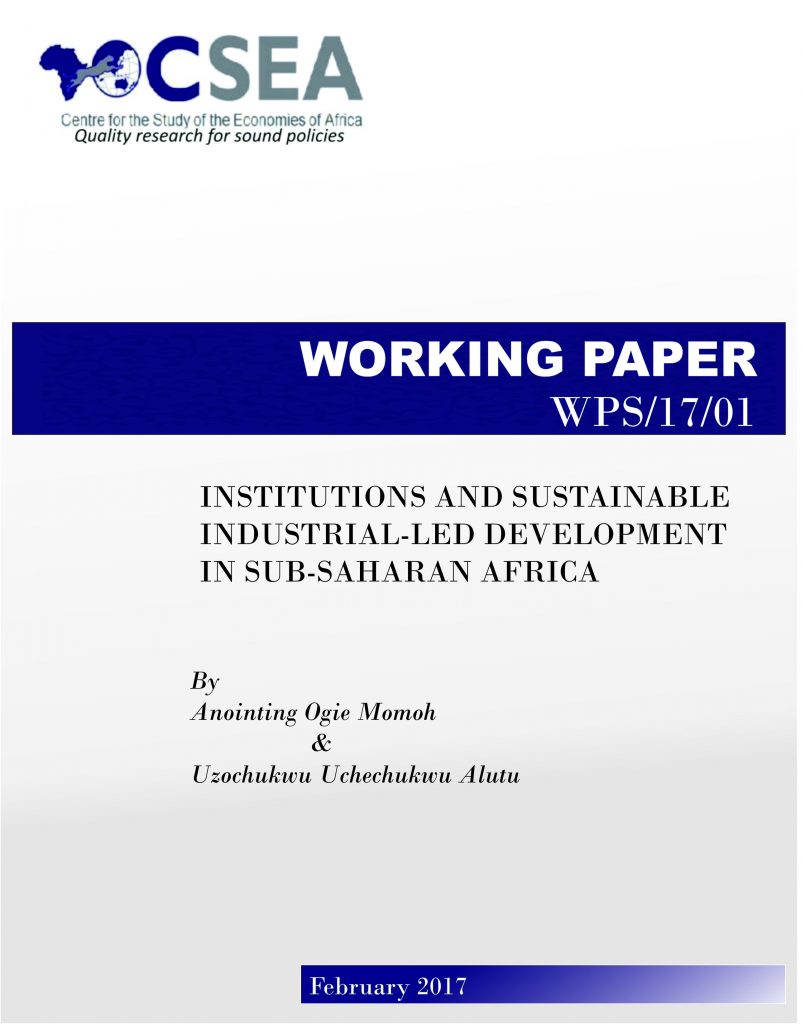Publications

June 26, 2017
Institutions And Sustainable Industrial-led Development In Sub-Saharan Africa
In 2015, economic growth in Sub-Saharan Africa
(SSA) slowed to 3.4 percent from 4.6 percent the previous year. The economic
slowdown in the region was the result of an interplay of several external and
domestic factors such as lower commodity prices, slowdown in the economies of
major trading partners, tightening borrowing conditions, political instability
and conflict, electricity shortages and other infrastructure deficiencies (World Bank, 2016). This sluggish
growth trends is in contrast to the impressive growth recorded in the region,
over the past decade.
Related
Consequences Of School Resources For Educational Achievement
This paper examines the
determinants of educational achievement in a developing country context,
Burkina Faso. We deviate from the extant literature by constructing an
aggregate index of school quality from the observable school resources. Also, we
account for school choice constraints, faced by children especially in rural
areas, as it relates to the geographical inequalities in the distribution of
quality schools. These treatments provide an unbiased estimates of the
relevance of school resources for academic performance. The empirical approach
is based on a two-stage procedure that accounts for supply constraints in
school choice.
Achieving Inclusive Growth Through Pro-poor Spending
The
paper examines if the nature of the economic growth in Nigeria is inclusive
(Pro-poor) or exclusive (pro-rich) and recommends ways to achieve inclusive
growth with emphasis on Pro-poor spending.
